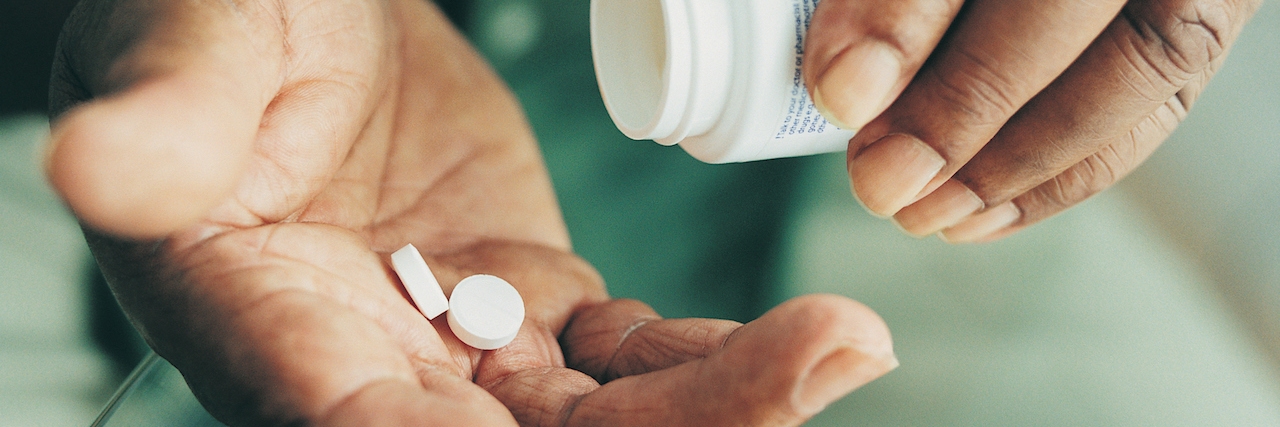A few months ago, I realized my anxiety had reached a tipping point. I had to either take control of my symptoms or deal with the consequences of leaving them untreated. So, I chose to take control. I scheduled an appointment with a psychiatrist, feeling the easiest course of action would be to get medication. I am a sincere advocate for counseling, but I felt that I needed something that would work sooner.
During my appointment, I told the psychiatrist of my troubles and we discussed what I was looking to accomplish. Then, we began to discuss medication. He had two in mind but wanted my input, based on the likelihood of me remembering to take a medication more than once a day. I, as someone that would lose her head if it wasn’t attached to her body, opted for the for the medication that required me to remember it less frequently. This medication was an antidepressant that could be used off-label as an anxiety medication. I was apprehensive at first, but figured that an attempt at a solution was better than ignoring the issue, as a I had done for the past few years.
The first two weeks on this new medication were horrible. The psychiatrist had advised me my anxiety would likely increase before it got better, but I had no idea that there would be other side effects. The most prominent of these other side effects was that I became extremely emotional. I felt a sadness I’d never felt before. Everything was a trigger and I was constantly teetering on the edge of crying. I was miserable. I considered stopping the medication, but decided against it. I remembered what the doctor told me and figured this was another symptom of my body’s adjustment to a new medication. I was correct. Around the third week, I began to notice a change. I was less emotional than I had previously been and I was more driven to do the things I had long been putting off.
One of those things was cleaning my house. I’ve written before about my little one and, between meeting his needs and working, I felt too tired to clean, or so I told myself. I actually sat on my sofa for hours after work before deciding that it was time for bed. On this new medication, I found the will I needed to complete this task.
The idea that I was able to clean my house after treating my anxiety was initially perplexing to me. Nothing about cleaning my house was anxiety inducing. Additionally, nothing about jogging — a former pastime of mine — induced anxiety, but I suddenly had the will to do these things again. I was on a jog one day when I realized why I hadn’t done those things in so long — I was depressed. I may not have felt entirely the crippling effects that depression can have on some people, but I had experienced an episode of mild depression none the less.
I may not have recognized my mood as “sad,” but I was irritable, I had no interest in doing anything outside of working, sleeping and taking care of pertinent responsibilities. I was pessimistic, my appetite had changed, I had no energy and I was having sleep issues. These are all signs of depression. Treating my anxiety helped me realize I had been depressed for months without knowing it. During those months, I convinced myself the angry, exhausted, antisocial person I had become was the person I had been my entire life. This treatment helped me realize I am not consistently any of those things. This treatment also helped me get my life back on track.
Now, almost three months after starting that medication, I feel like a new person. My house is clean, I’m sleeping better and I’m jogging fairly regularly. I finally feel like myself again — my actual self, not the self I was convinced defined me during my struggle with anxiety and depression.

